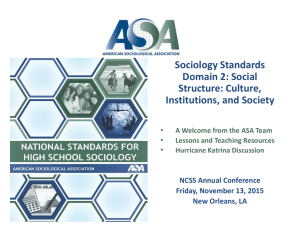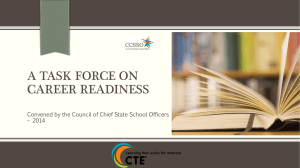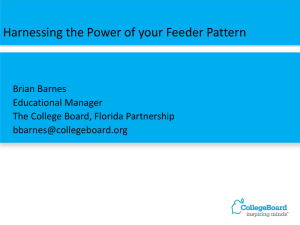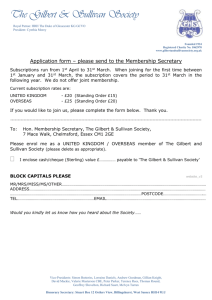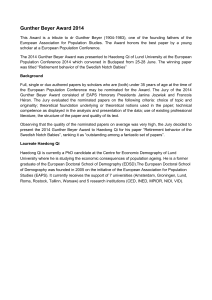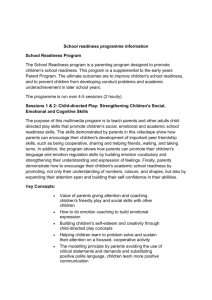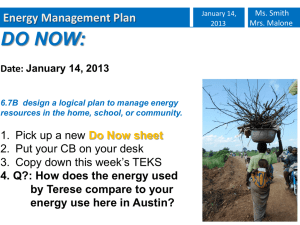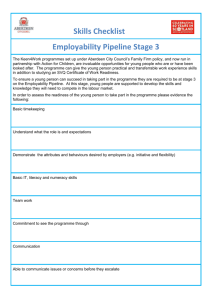Preparing Students For Life
advertisement
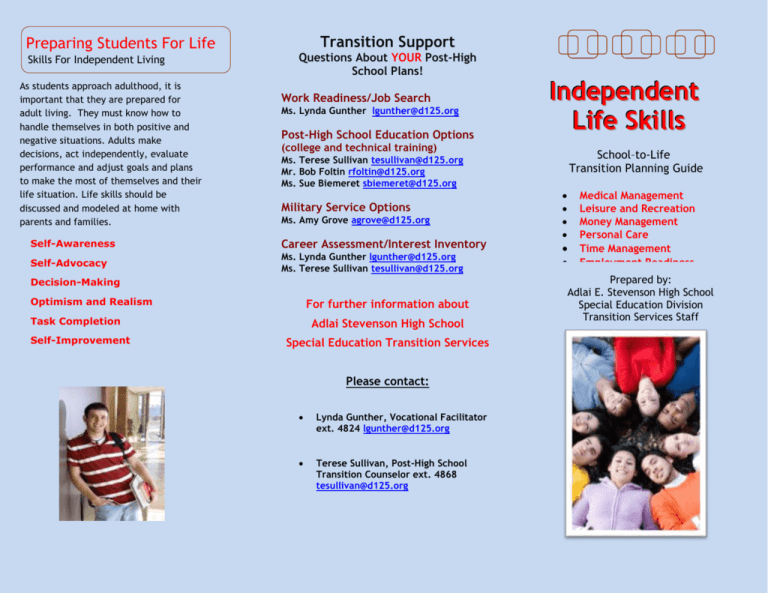
Preparing Students For Life Skills For Independent Living As students approach adulthood, it is important that they are prepared for adult living. They must know how to handle themselves in both positive and negative situations. Adults make decisions, act independently, evaluate performance and adjust goals and plans to make the most of themselves and their life situation. Life skills should be discussed and modeled at home with parents and families. Transition Support Questions About YOUR Post-High School Plans! Work Readiness/Job Search Ms. Lynda Gunther lgunther@d125.org Post-High School Education Options Independent Life Skills (college and technical training) Ms. Terese Sullivan tesullivan@d125.org Mr. Bob Foltin rfoltin@d125.org Ms. Sue Biemeret sbiemeret@d125.org Military Service Options Ms. Amy Grove agrove@d125.org • Self-Awareness Career Assessment/Interest Inventory • Self-Advocacy Ms. Lynda Gunther lgunther@d125.org Ms. Terese Sullivan tesullivan@d125.org • Decision-Making • Optimism and Realism • Task Completion • Self-Improvement For further information about • Adlai Stevenson High School Special Education Transition Services Please contact: Lynda Gunther, Vocational Facilitator ext. 4824 lgunther@d125.org Terese Sullivan, Post-High School Transition Counselor ext. 4868 tesullivan@d125.org School–to-Life Transition Planning Guide Medical Management Leisure and Recreation Money Management Personal Care Time Management Employment Readiness Prepared by: Adlai E. Stevenson High School Special Education Division Transition Services Staff w w w w w w Medical Management . H Call and schedule medical and dental appointments Know your medical insurance plan Organize prescription medication Independently take medication Prepare a first aid kit at home Prepare an emergency contact list including any allergies or medications Personal Care Organization and Time Management Organization is a challenge for many people but can be especially challenging for individuals with special needs. Use day planners/assignment notebooks Make a daily list of tasks and goals Use timers and alarms to be on time, to stay focused and to be responsible Go through mail on a daily basis Establish two days out of every month to pay bills and balance accounts. Set up a filing system for all important documents and bills. Break down large projects into smaller tasks Daily Bathing Skin Care - Nail Care - Hair Care Dental Hygiene Clean and appropriate clothes Proper nutrition and sleep Money Management Employment Readiness Make responsible expenditures Household Management Plan a complete meal for your family or friends Make the food list and go shopping Prepare the meal and clean-up afterwards Learn to operate a washer and dryer, and do a load of laundry (lights – darks – delicates) Learn how to use home cleaning supplies/basic appliances and take responsibility for weekly chores Review apartment ads/rates and the steps in the rental process Transportation Practice using public transportation (Metra, CTA, and taxi) Practice basic car care and routine maintenance (tires, oil, wiper fluid) Use map quest or an atlas to map out driving directions Obtain a drivers license or state ID Complete a career assessment and interest inventory (job interests) Keep basic financial records Learn the training and qualifications of the career/job. (Is it realistic for you?) Have a discussion about fixed monthly costs like home utilities, insurance etc. Talk to friends and family about their jobs and careers (Arrange a job shadow) Develop a personal fitness plan Open a checking and savings account Investigate local park district options Create a resume and cover letter Obtain an ATM/debit card Check out community college classes Memorize your social security number Visit a bank or bank website to learn the process for obtaining a loan and other financial services Participate in religious social groups Volunteer in the community Utilize your public library Leisure/Recreation


